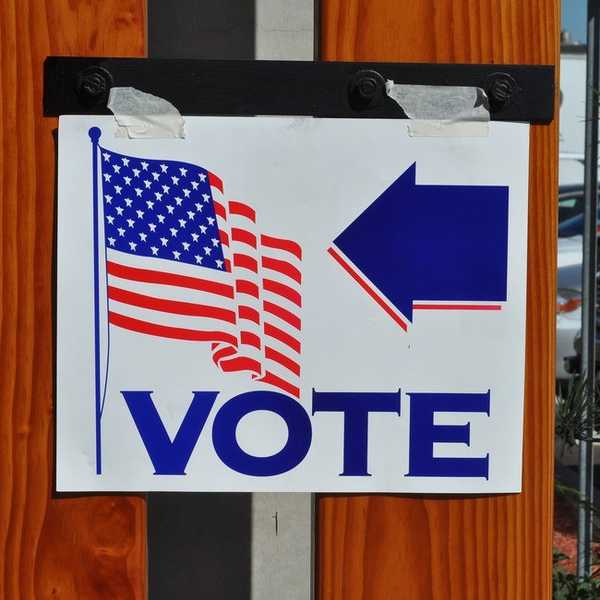Emma Watson made headlines all over the world when she made her 2014 United Nations speech, launching the campaign HeforShe and declaring herself a feminist. Blogs, magazines, newspapers and celebrities all hailed her as a role model. ELLE called her the “fresh face of feminism” Vanity Fair referred to her speech “game-changing”. Nobody would argue that she has not had an impact. However, there is quite a bit of debate as to if the influence she has had as an icon, Goodwill Ambassador, and self-proclaimed feminist is a positive one.
The speech that started it all was focused almost entirely on the people who need feminism the least. Namely, men and white women living in the western world. The education of “rural African girls” and child brides were mentioned toward the end of her speech, almost as an aside, while the rest of the speech focused on white women and on congratulating men for not taking away basic human rights for women. The only way that Watson substantially ‘changed the game’ was by helping to solidify white western privilege in feminism and setting the bar for men quite possibly lower than it has ever been before.
One of the first concerns Watson mentions is noticing her female friends dropping out of sports because it was too masculine. Female representation in sports in an issue that needs to be addressed, as does the concept of intensive and competitive exercise being defeminizing. However, in front of powerful leaders who have pull over nations where female genital mutilation, bride burnings and virginity testing are rampant, the issue of women not signing up for soccer simply has to take a backseat. Yet the speech continues in this fashion, with Watson mentioning a western issues that needs to be addressed, but doesn’t touch on horrific acts of violence occurring in developing countries. Watson’s omission of women of color doesn’t seem to know any sort of border, however. She discusses the wage gap and never once mentions the huge impact race has on what women are paid. She discusses her mentors never ‘assuming [she] wouldn’t go as far” because she was a woman, and never once mentions how often educators are less inclined to help people of color because they assume young women with dark skin are poorly behaved.
The criticism of Watson’s exclusion of women of color in her speech wasn’t exactly helped by her reply to the accusations. She responded on twitter, saying that she found it ‘surprising’ that people would call her racist or exclusionary given that her “bosses (and people who gave [her] this job) are two black women.”
This statement, obviously, was met with more than a little frustration as ‘I’m not racist, I have a black boss’ takes ‘I’m not racist I have black friends’ to an entirely new level. Yet still, thousands, if not hundreds of thousands, of white feminists disregarded it. The most prevalent argument for doing so seemed to be that feminism ‘isn’t about race’.
Feminism may not be about race, but it has everything to do with it. Feminism is defined as the belief that women should have equal social, political and economic power. Watson herself uses this definition, almost verbatim, in her speech. ‘women’ does not mean white women. It does not mean cisgender women, rich women, straight women, western women, attractive women, young women, able-bodied women. It means women. Full stop. No exceptions. If there is even one woman at the intersection of two or more different forms of oppression, the other forms of oppression become feminist issues as well by default. Given that roughly 70% of women are women of color, racism and the unique challenges posed by the intersection of racism and sexism should be at the forefront of our minds and actions if we want to call ourselves feminists.
The secondary issue, presented not only by the speeches she’s made but also the organization HeForShe itself is that of the role of men. HeForShe focuses on men. Not by asking them to take accountability for their own actions, or to challenge themselves to question their biases but to reward them for the bare minimum and cement them as a priority in feminism.
Watson said in her 2014 speech that she has seen men be ‘imprisoned’ by gender stereotypes. The phrasing of this is pretty offensive, as well as over dramatic. When women step out of their gender roles, they are risking quite a bit more than just insults. Watson herself was threatened with leaked nude photos twelve hours after her speech. When women began to excel in medicine, they were marked as witches and burnt alive. In some parts of the world, if a woman refuses to marry someone, it’s not uncommon for her to be doused in acid. While it may be uncomfortable for men to break out of gender stereotypes, when they do, the risk of retaliation doesn’t really exceed more than being insulted. The vast majority of the hatred and abuse that’s directed at men who step out of their gender roles has nothing to do with masculinity and everything to do with homophobia. Men are not ‘imprisoned’ by gender stereotypes, they are discomforted and inconvenienced by them.
The sort of assumption that men are not capable of taking action or responsibility because of social pressure has consequences that women are forced to bear. In a 2015 interview with Ali Plumb Watson speaks about how she heard from a man who didn’t like to drink heavily, mainly due to the fact that he didn’t like the way that he treated women when he was drunk. Watson says that he told her that he does this because he is under so much pressure from the culture around him. She seems not to care about him not holding himself accountable for his actions under the influence, nor does she seem to think that he has a responsibility not to harass women. Instead of asking him to speak up and be mildly uncomfortable in exchange of granting women who he doesn’t even know their humanity, Watson refers to him as ‘really sweet’ for being ashamed for ‘the way he treated girls’ when he was drunk and preferring not to binge drink.
This trend continues in Watson’s later speeches and interviews. Just a few days later at the World Economic Forum in Switzerland, she speaks about wanting people to tell her their HeForShe experiences. She asks for girls to tell her about their mentors and asks boys to tell her about situations where they spoke up when a woman was “casually degraded or dismissed” in conversation. It may seem like a small difference, but asking boys to tell about their tiny heroics while asking women to discuss their heros isn’t exactly a strong feminist ideal. Watson seems unconcerned with empowering women and determined to reward men for doing the bare minimum.
While it is true that some men have taken remarkable action, the vast majority of the men involved have done nothing more than sign the HeforShe petition. While that’s all fine and good, being a man and saying that you believe women should be paid equally doesn’t merit a standing ovation. In fact, it doesn’t merit anything. Nobody hands out awards to people for not murdering other people. It’s something you’re expected to do. Not treating women like garbage isn’t commendable, it’s the very least that men can do.
The most prevalent theme in Watson’s activism I feel is best reflected by something she said in her very first United Nations speech. “How can we affect change in the world when only half of it is invited?”
Ignoring the obvious faux pas of men having not been ‘invited’ to feminism in the first place, she is all but staying verbatim that women need men. This statement spits in the face of every feminist that had to fight tooth and nail against their own friends, colleagues, husbands, partners, fathers, brothers sons, bosses, employees and teachers to get an inch closer to the humanity that men were granted at birth. The fact of the matter is that historically, men have done far more to hinder than help women’s rights. Yet she is standing on a political platform, speaking her mind, in a country where it is illegal for anyone to be owned or abused, and where we can vote for elected officials. A hundred years ago that wouldn’t have been true.
Yes, it’s wonderful to have male feminists and yes, progress happens faster with men on board, but the implication that any women, let alone all women, need the help of a man to change the world goes against every single thing feminism stands for. The idea that we cannot hold our own protests, petition the government, write new law, change minds without the help of men digs up the archaic belief that ‘women can’t’ need men in order to do pretty much anything. An ideal which was, frankly, halfway buried before Watson and the other people behind HeForShe dug it back up.
When I was in the ninth grade, I did a project on the flight attendants strike. My group and I interviewed several women who had been a part of the movement to end the sexist requirements of flight attendants. One woman we spoke to over the phone told me something that didn’t make sense then but did make sense now. She said that feminism wasn’t about who got the bigger slice of pie. Feminism was about making sure that everyone got a slice of the pie and even more than that, feminism was about figuring out how we could make a better pie. If I’m certain on one thing it is that this brand of feminism is not how you make a better pie. We need to have men take accountability and responsibility for their actions, stop rewarding them for human decency. We need to stop holding women back by telling them that they need a man in order to accomplish anything. We have to stop excluding marginalized women and ignoring the effects of the intersections of oppression that the vast majority of women face. People change their minds every day. If and when Emma watson changes hers, I will wholeheartedly support her. However, as we stand today, I believe that we are better than this. Now let’s prove it.




















